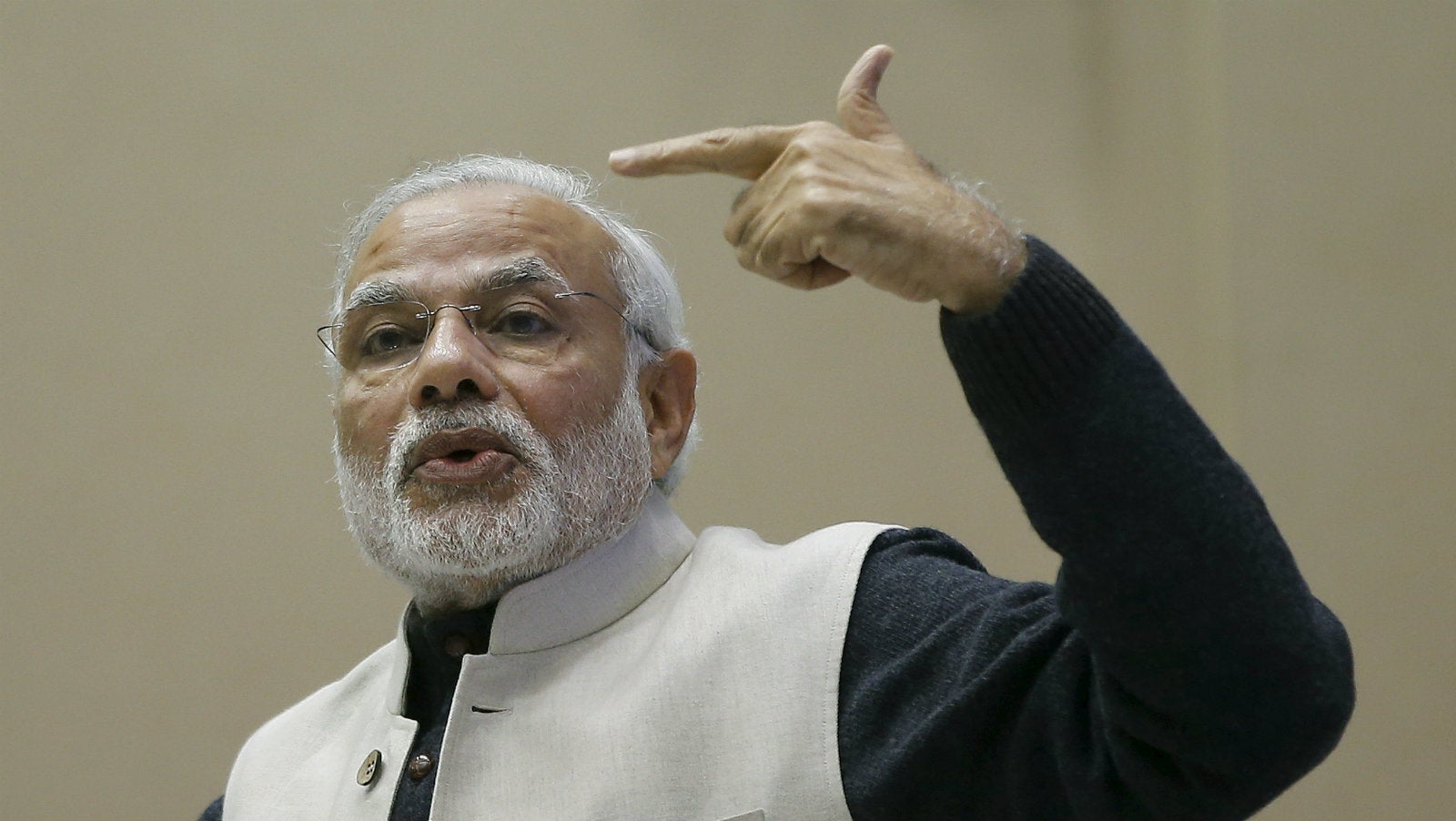Attack is the best defence: The Modi government beats Rajan blues with fresh FDI salvo
Amid the fallout of Raghuram Rajan’s decision to exit, the Narendra Modi government has decided to make its own move.


Amid the fallout of Raghuram Rajan’s decision to exit, the Narendra Modi government has decided to make its own move.
Two days after the Reserve Bank of India governor said he won’t seek a second term, the Bharatiya Janata Party (BJP) government announced a series of changes to the country’s foreign direct investment (FDI) regime.
Foreign investment norms in aviation, defence, pharmaceutical and retail sectors have been tweaked, which according to prime minister Modi now “makes India the most open economy in the world for FDI.” In particular, the new norms could be good news for Apple, which has been pushing hard to gain access into India, one of fastest growing smartphone markets in the world.
“Centre has radically liberalised the FDI regime, with the objective of providing major impetus to employment and job creation in India,” Modi added.
The last time such sweeping changes were made to India’s FDI regime, the BJP had just suffered a resounding defeat in the Bihar elections in Nov. 2015. A day after the Bihar verdict, the Modi government announced changes to the FDI policies in 15 sectors, including defence, mining and banking. The government had also allowed 100% FDI in completed construction projects, non-news channels, teleports, cable networks and certain plantation industries.
This time around too, the timing of these FDI announcements is a clear signal of the government’s intent to take the focus away from a debacle—in this case, Rajan’s decision to leave. Here are some of the proposed changes:
Defence
- The government will now allow 100% FDI in defence, without the mandatory condition of foreign partners bringing “state-of-the-art” technology. Instead, the government will seek ”access to modern technology in the country or for other reasons to be recorded.” Effectively, this only seems to be a change in nomenclature, as any investment above 47% is still subject to government approval on the basis of the new parameters.
- The policy changes have also been extended to manufacturing of small arms and ammunitions covered under Arms Act, 1959.
Civil Aviation
- The government has opened up FDI in airlines to 100%. However, the existing policy that permits foreign airlines to own only up to 49% stake in an Indian airline company is being retained. The new policy, though, could allow a sovereign fund from the foreign airline’s country of origin to purchase the remaining stake, which would effectively give it complete control.
- 100% FDI in existing airports will now be permitted under the automatic route.
Retail
- In a big move that may finally help Apple open retail stores in India, the government eased sourcing rules for single-brand retailers that produce high-end technology goods. “Apple is expected to be a beneficiary of a three-year relaxation India is introducing on local sourcing norms with an extension of up to five years possible if it can be proven that products are ‘state of the art’,” Reuters reported. Relaxation of local sourcing norms could also benefit single-brand retailers such as Swedish furniture maker IKEA.
- The government will now allow FDI up to 100% in the trading of food products that are manufactured or produced in India. The new rules will also be applicable to the sale of food products through e-commerce. It will also give foreign retailers access to setting up food retailing stores in India, as well as allow foreign funding in Indian companies that want to sell locally produced food products.
Pharmaceuticals
- In the pharmaceutical sector, the government has now allowed 74% FDI in brownfield projects under the automatic route. According to existing policies, 100% FDI is allowed in brownfield projects, subject to government approval.